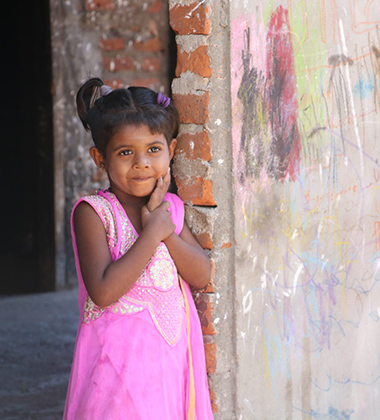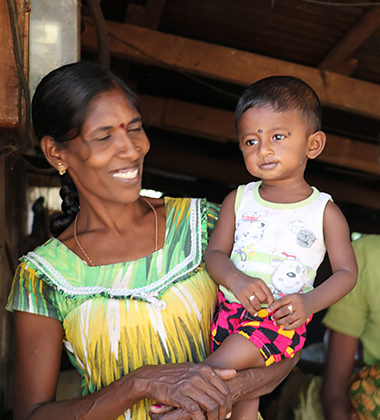Need for Affordable Housing in Sri Lanka
Since Habitat for Humanity Sri Lanka first began its operations in 1994, the the housing deficit in the country has rapidly increased. Despite great advances made by the Government, INGOs and civil society organizations, research indicates that the lack of adequate housing is one of the biggest challenges faced by the communities in the North and East and people living in disaster-prone areas of Sri Lanka. As revealed in the Housing Needs Assessment of 2016, out of the 6 million families living in Sri Lanka, only 5.2 million have some form of housing.
A decade after the nearly 30-year long civil war ended in 2009, many families are still identified as internally displaced persons (IDPs), living in temporary shelters in the North and East of the country. It is estimated that one in two people living in the capital Colombo is a slum dweller who lacks adequate access to clean water and safe sanitation. The lack of decent housing for plantation workers is another area of concern. These poverty-stricken workers live in deplorable conditions, in temporary structures known as ‘line houses’ which have poor ventilation and no proper access to safe drinking water or sanitation facilities.
Sri Lanka’s official poverty line at national level (as at July 2019) – which is the minimum expenditure person per month to fulfill his/her basic needs, indicates that any person earning less than LKR 4,898 (USD 27) is considered to be living below the poverty line. In this context, it is estimated that nearly 800,000 Sri Lankan families are still in need of safe places to call home. This is the need Habitat for Humanity Sri Lanka strives to address.
Habitat for Humanity Sri Lanka is committed to reaching these impoverished communities through its varied program initiatives which focus on house construction, providing communities with access to safe drinking water and sanitation facilities and effectively responding to disasters.
When individuals and families have access to stable, quality affordable housing, they can become part of a diverse community, find and keep jobs, lead healthier lives and take better care of their children. Housing, is much more than just having a roof over one’s head, it is the hope and the possibility of a better life.






